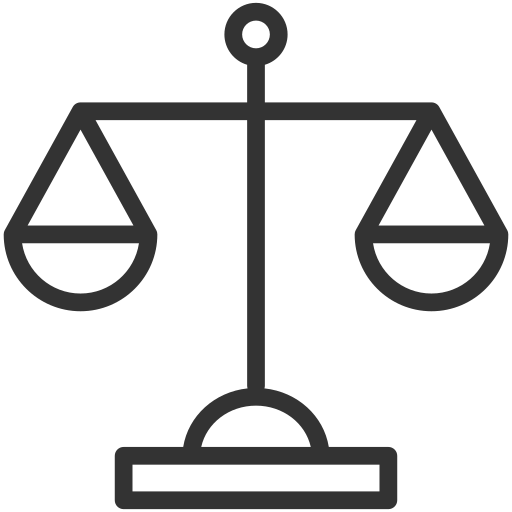|
THE MINISTRY OF
FINANCE OF VIETNAM |
THE SOCIALIST
REPUBLIC OF VIET NAM |
|
No. 348/CT-CS |
Hanoi, March 28, 2025 |
To: Regional Sub-departments of Taxation
On March 20, 2025, the Government has promulgated the Decree No. 70/2025/ND-CP providing amendments to the Government’s Decree No. 123/2020/ND-CP dated October 19, 2020 prescribing invoices and records (which comes into force from June 01, 2025).
The Department of Taxation herein introduces some contents of the Decree No. 70/2025/ND-CP and requests Regional Sub-departments of Taxation to promptly adopt measures for disseminating the contents of the Decree No. 70/2025/ND-CP to tax officials and taxpayers for making preparations for implementation thereof. Particularly, it is necessary to focus on introducing and disseminating the contents related to rights, responsibilities and obligations of taxpayers, including: types of invoices (electronic commercial invoices for exported goods or services, invoices issued by export processing enterprises) (Article 8); time of issue of invoices (Article 9); contents of invoices (Article 10); entities eligible to use e-invoices generated by POS cash registers (Article 11); issuance of e-invoices (Article 13); application for use of e-invoices and modification thereof (Article 15); suspension of use of e-invoices (Article 16); replacement and correction of e-invoices (Article 19).
(Further details are available in the Appendix enclosed herewith).
Regional Sub-departments of Taxation are requested to proactively implement guidelines herein./.
|
|
PP. DIRECTOR
GENERAL |
INTRODUCTION OF SOME NEW CONTENTS OF DECREE NO.
70/2025/ND-CP DATED MARCH 20, 2025 PROVIDING AMENDMENTS TO GOVERNMENT’S DECREE
NO. 123/2020/ND-CP DATED OCTOBER 19, 2020 ON INVOICES AND RECORDS
(Enclosed with the Official Dispatch No. 348/CT-CS dated March 28, 2025 of
the Department of Taxation)
The Decree No. 70/2025/ND-CP prescribing invoices and records has been promulgated by the Government on March 20, 2025, and comes into force from June 01, 2025. This Decree provides amendments to 40 of 61 Articles of the Decree No. 123/2020/ND-CP. To be specific:
1.1. Regulated entities (Article 2):
Addition of entities eligible to use e-invoices: “Foreign suppliers that do not establish permanent establishments in Vietnam, engage in e-commerce, digital platform-based business and provide other services, and voluntarily register for use of e-invoices” and use of VAT invoices (Article 2 and clause 1 Article 8)
1.2. Rules for issuance, management and use of invoices and records (Article 4)
(i) Addition of cases where the seller must issue and send invoices to buyers, including “the cases of invoicing prescribed in Article 19”.
(ii) Addition of regulation: Goods sellers, service providers, e-invoice service providers and tax authorities shall use the e-invoice database for implementing measures for encouraging consumers to get invoices when buying goods or using services such as loyalty programs or rewards programs and “lucky invoice” programs. Regarding measures for encouraging consumers that are individuals to get invoices when buying goods or using services to serve information dissemination and increasing of consumers’ awareness implemented by tax authorities, the Ministry of Finance shall organize the implementation of these tasks using state budget-derived annual funding for modernizing and enhancing efficiency and effectiveness of tax administration in accordance with regulations of law on tax administration.
(iii) Amendment: sellers (including household businesses and individual businesses) are allowed to authorize third parties to issue e-invoices.
Current regulation: According to the Decree No. 123/2020/ND-CP , only sellers that are enterprises, economic organizations and other organizations are allowed to authorize third parties to issue invoices, and according to the Circular No. 78/2021/TT-BTC , third parties are related parties of sellers.
(iv) Addition of regulation on integration of fee receipt and e-invoice into a single electronic format in order to facilitate buyers of goods or services and digital transformation.
1.3. Types of invoices (Article 8)
(i) Addition of regulation on types of invoices issued by export processing enterprises: Export processing enterprises that perform other business activities (in addition to export processing activities) shall use sales invoices if declaring VAT using direct method, and use VAT invoices if declaring VAT using credit-invoice method.
(ii) Addition of regulation on electronic commercial invoices “that are invoices used by organizations, enterprises or individuals (exporters) that export goods or provide services to foreign countries and meet conditions for transmitting data on electronic commercial invoices to tax authorities using electronic means. Each electronic commercial invoice must contain adequate information as prescribed in Article 10 hereof and be issued in the standard data format regulated by the tax authority as prescribed in Article 12 hereof.
Where an exporter fails to meet conditions for transmitting data on electronic commercial invoices to tax authorities using electronic means, the exporter shall use either electronic VAT invoices or electronic sales invoices.”
1.4. Time of issue of invoices (Article 9)
(i) Addition of regulation on time of issue of invoices for export of goods (including processing of goods for export) (either electronic commercial invoice, electronic VAT invoice or electronic sales invoice shall be issued) shall be determined by the seller, provided that an invoice must be issued no later than the working day following the day on which the goods are granted customs clearance in accordance with regulations of law on customs (clause 1).
(ii) Addition of regulation on time of issue of an invoice for provision of services for foreign organizations or individuals that is the same as provision of services in Vietnam and is the time of completion of provision of services, irrespective of whether the payment of the invoiced amount is made or not (clause 2).
(iii) Time of issue of invoices in specific cases (clause 4)
- Addition of cases where a good is sold or a service is provided regularly and in large quantities, and needs time for data checking and verification between the seller or service provider and its clients/partners, time of issue of an invoice is the time of completion of data checking and verification between the parties, provided that such an invoice must be issued no later than the 07th of the month following the month in which the service is provided or within 07 days after the end of a cycle, including: railway transport support services, television advertising services, e-commerce services, banking services (except lending activities), international money transfer services, securities and computer-drawn lottery services, collection of road user charges between investors and collection service providers, and other cases as prescribed by the Minister of Finance.
- Addition of regulation on time of issue of an invoice in insurance business sector that is the time of recording of revenues from insurance business as prescribed in the law on insurance business.
- Addition of regulation on time of issue of an invoice for traditional lottery products and instant lottery games in which preprinted lottery tickets of various face values are sold to clients: after taking back packs of unsold tickets and before the next drawing, the lottery enterprise shall issue an authenticated electronic VAT invoice to each lottery agent that is either an organization or an individual for the quantity of lottery tickets sold in the period, and send it to the tax authority for grant of authentication code.
- Addition of regulation on time of issue of an invoice for casino business and prize-winning electronic games: “E-invoices must be issued within 01 day from the end of the revenue determination date, and the enterprise providing casino and prize-winning electronic games shall transmit the data recording total amount received (including amounts earned from exchange of tokens for gamblers at casino cages or gaming tables and amounts collected from gaming machines) minus amounts paid to gamblers (prize money or amounts paid for re-exchange of unused tokens) using Form No. 01/TH-DT in Appendix IA enclosed herewith to the tax authority at the same time when it transmits e-invoice data. The revenue determination date means the length of time starting from 00:00 to 23:59 of the same day.”
- Addition of regulation on time of issue of an invoice for lending activities shall be determined according to the interest payment term specified in the credit agreement signed by and between the credit institution and borrower, except the case where an interest amount cannot be collected and is recorded by the credit institution as an off-balance-sheet item in accordance with regulations of law on extension of credit, the invoice shall be issued when receiving such interest amount paid by the borrower. In case the interest is paid before its due date under the credit agreement, the invoice shall be issued when receiving such early repayment of interest.
- Addition of regulation on time of issue of an invoice for foreign exchange agency activities and provision of foreign currency receipt and payment services for economic organizations of credit institutions that is the time of foreign exchange or the time of completion of provision of foreign currency receipt and payment services.
- Amendment of regulation on time of issue of an invoice for sale of natural gas, associated gas or coal gas which is transported through pipelines to buyers that is the time of agreement on the quantity of gas delivered in a month by the buyer and seller, provided that such an invoice must be issued no later than the final date of the time limit for declaring and paying tax for the month in which tax obligations occur in accordance with regulations of law on taxation.
Current regulation: According to the Decree No. 123/2020/ND-CP , time of issue of an invoice for sale of natural gas, associated gas or coal gas is the time of agreement on the quantity of gas delivered in a month by the buyer and seller, provided that such an invoice must be issued within 07 days from the date of the seller’s written notice of quantity of gas delivered in the month.
- Abrogation of point g clause 4 prescribing that an invoice shall be issued at the end of each day in respect of retailers, and foods and drinks trading establishments that sell foods and drinks directly to consumers through their stores but all business operations are recorded at their head offices.
- Abrogation of regulation on issuance of a consolidated invoice at the end of each day or each month in case of provision of banking, securities, insurance or e-wallet money transfer services, electricity supply suspension and resumption services rendered by electricity distributors to buyers that are non-business individuals and do not request for invoices.
- Amendment of regulation on time of issue of invoices for provision of passenger transport services by taxis equipped with taxi fare calculation software that, at the end of the trip, an invoice shall be issued and invoice data shall be transmitted to the tax authority.
Current regulation: According to the Decree No. 123/2020/ND-CP , enterprises or cooperatives providing passenger transport services by taxis equipped with using taxi fare calculation software shall send information about the trip to passengers and to the tax authority; an invoice shall be issued and delivered to the passenger at his/her request, and such issued invoice shall be also sent to the tax authority.
- According to point n clause 4, the phrase “cơ sở y tế kinh doanh dịch vụ khám chữa bệnh” ("health facilities providing medical examination and treatment services”) is replaced with the phrase “cơ sở khám bệnh, chữa bệnh” (‘health facilities”) and regulation “The health facility shall also issue an invoice to the social insurance agency when it receives reimbursement of costs of medical examination and treatment services provided for health insurance card holders from the social insurance agency” is added to be conformable with the Law on health insurance.
1.5. Contents of an invoice (Article 10)
(i) Addition of regulation on the buyer’s information: in addition to the buyer’s name, address and TIN, the invoice also contains the buyer’s personal identification number or code of unit having relationship with state budget.
(ii) Addition of name of the good or service: for foods and drinks services, the invoice shall indicate name of the food or drink product; for transport service, the invoice shall indicate the vehicle’s plate number and voyage (place of departure - place of arrival); for a transport company that provides digital platform-based goods transport services or provides transport services in e-commerce sector, the invoice shall indicate the name of goods transported, name, address, TIN or personal identification number of the consigner.
(iii) Amendment of specific regulation on such cases as supply of electricity, water, telecommunications services, IT services, television services, postal and delivery services, banking, securities or insurance services for which invoices may be issued for each cycle, medical examination and treatment services, and other cases, as prescribed by the Minister of Finance, invoices may be issued after completion of data checking and verification, and shall be accompanied with a list of goods/services.
(iv) Promulgation of specific regulation on the case where the date of a digital signature on an issued e-invoice is different from the issuance date of the e-invoice, the date of the digital signature and the date on which the issued invoice is sent to the tax authority for grant of authentication code (for an authenticated invoice) or the date on which the e-invoice data is transferred to the tax authority (for an unauthenticated invoice) shall not be later than the working date following the issuance date of the invoice (unless data is sent using a datasheet as prescribed in point a.1 clause 3 Article 22 hereof). The date of tax declaration by the seller shall be the issuance date of the invoice; the date of tax declaration by the buyer shall be the date of receipt of the invoice which is issued in the correct format and contains adequate information as prescribed.
Current regulation: According to the Decree No. 123/2020/ND-CP , if the date of a digital signature on an issued e-invoice is different from the issuance date of the e-invoice, the issuance date of the invoice shall be used as the basis for tax declaration and there is no regulation applicable to the buyer.
(v) Regarding cases where an e-invoice does not necessarily bear all of required information:
- Promulgation of specific regulation that e-invoices for sale of oil and gas to non-business individuals do not necessarily bear the buyer’s name, address, TIN and digital signature.
Current regulation: According to the Decree No. 123/2020/ND-CP , an e-invoice does not necessarily bear the name, form number, reference number, and number of the invoice, the buyer’s signature and VAT rate.
(vi) Addition of regulation that e-invoices issued for provision of casino services or prize-winning electronic games do not necessarily bear the buyer’s name, address, TIN and digital signature.
(vii) Addition of regulation on VAT invoice cum refund claim which must comply with specific guidelines given by the Minister of Finance of Vietnam.
1.6. E-invoices generated by POS cash registers (Article 11)
(i) Entities eligible to use e-invoices generated by POS cash registers:
Addition of entities eligible to use e-invoices generated by POS cash registers with network connection for transfer of electronic data to tax authorities: Any household business or individual business that is prescribed in clause 1 Article 51 and has annual revenue of at least VND 01 billion, those prescribed in clause 2 Article 90, clause 3 Article 91 of the Law on Tax Administration No. 38/2019/QH14 and enterprises selling goods and providing services, including sale of goods or provision of services directly to consumers (shopping malls; supermarkets; retailers (except automobiles, motorcycles, motorbikes and other motor vehicles); foods and drinks; restaurants; hotels; passenger transport services, road transport support services, arts, entertainment, cinema and other personal services as prescribed in Vietnam Standard Industrial Classification).
Current regulation: According to Article 8 of the Circular No. 78/2021/TT-BTC , use of e-invoices generated by POS cash registers is optional.
(ii) Promulgation of specific regulation on contents of an e-invoice generated by POS cash register:
- The seller’s name, address and TIN;
- The buyer’s name, address and TIN/personal identification number/telephone number (if requested by the buyer);
- Name of goods/services, unit price, quantity and payment price. If an organization or enterprise pays taxes using the credit-invoice method, the selling price exclusive of VAT, VAT rate, total VAT payable, and total amount payable inclusive of VAT must be clearly written on the e-invoice;
- Issuance date of the invoice;
- The tax authority’s identification code or electronic data allowing the buyer to access and declare information contained in the e-invoice generated by POS cash register.
The seller shall send the e-invoice to the buyer by electronic means (message, email and other means) or provides the link or QR code for the buyer to search for and download the e-invoice.
Current regulation: According to the Circular No. 78/2021/TT-BTC , an e-invoice generated by POS cash register shall contain the seller’s name, address and TIN; the buyer’s information; name of the good or service, unit price, quantity, payment price; issuance date of the invoice and the tax authority's code.
1.7. Use of e-invoices in sale of goods and provision of services (Article 13)
(i) Addition of 02 cases where authenticated electronic invoices (VAT invoices or sales invoices) are issued at each time when a transaction occurs:
- An enterprise is following bankruptcy proceedings but still engages in business under the Court’s supervision;
- An enterprise, economic organization, other organization, household business or individual business is providing explanations or submitting additional documents.
(ii) Addition of regulations on cases where entities that are provided with invoices shall prepare tax declaration dossiers in accordance with regulations of the law on tax administration; regulations on payment of taxes when issuing invoices at each time when a transaction occurs.
(iii) Addition of regulations on correction or replacement of invoices issued at each time when a transaction occurs.
1.8. Replacement and correction of e-invoices (Article 19)
(i) Abrogation of regulation on cancellation of erroneous invoices
Current regulation: According to the Decree No. 123/2020/ND-CP , if the seller finds that an issued authenticated e-invoice which is not yet sent to the buyer contains errors, the seller shall cancel it and issue a new invoice.
(ii) Addition of regulation that, before correcting or replacing an erroneous invoice issued to the buyer that is an enterprise, economic organization, other organization, household business or individual business, the seller and the buyer shall reach a written agreement clearly indicating the errors; in case the buyer is an individual, the seller shall inform the erroneous invoice to the buyer or on the seller's website;
Current regulation: According to the Decree No. 123/2020/ND-CP , a written agreement on correction or replacement of an erroneous e-invoice is optional.
(iii) Addition of regulation that 01 invoice may be issued for replacing or correcting all of the erroneous invoices issued in a month to the same buyer.
(iv) Promulgation of specific regulation that, if the tax authority discovers the errors on authenticated or unauthenticated e-invoices, it shall send a notice to the seller to check such errors, and the seller shall check the errors according to the tax authority’s notice and correct or replace the erroneous invoice as prescribed.
(v) Abrogation of regulation that, within 01 working day, the tax authority shall give a notice of receipt and consideration in case the taxpayer assumes responsibility for review themselves.
Current regulation: According to the Decree No. 123/2020/ND-CP , if the seller fails to give a notice to the tax authority, the tax authority shall consider carry out inspection of the seller’s use of e-invoices.
(vi) Addition of invoices issued to correct the issued e-invoices in some cases (clause 4):
“a) If, upon actual payment or final statement, there are changes in the value/quantity of goods or services written on an e-invoice which is issued when selling goods or providing services and is not erroneous according to the conclusion given by a competent authority as prescribed in relevant law, the seller shall issue a new e-invoice for the difference which must correctly reflect the transaction (use the minus sign (-) to indicate a negative difference and the plus sign (+) to indicate a positive difference).
b) In case of quantity or turnover discount, the discount amount shall be reflected on the invoice issued for the last shipment or the next period, provided that total discount shall not exceed the value of goods or services written on such invoice, or a correction invoice shall be issued and accompanied with the list of corrected invoices which also indicates the corrected amounts and tax amounts. Such list shall be kept by the taxpayer and presented at the request of either the tax authority or competent authority. Based on the correction invoice, the seller and buyer shall declare corrections to their revenues, input and output tax in the period in which the correction invoice is issued.
c) Handling of e-invoices in case of return of goods or services:
c.1) In case of return of goods: If the buyer returns all or part of the goods (including exchange of goods which results in change in the value of the purchased goods), the seller shall issue a correction invoice, unless the buyer issues an e-invoice for the returned goods as agreed upon between the parties. The buyer and the seller shall fulfill their own tax obligations arising from the sale of goods.
c.2) In case goods are assets subject to compulsory registration of rights to use or ownership as prescribed by law or assets which have been registered under the buyer's name, return of such goods must comply with regulations of relevant laws; if the buyer is eligible to use e-invoices, the buyer shall issue an invoice for the goods returned to the seller.
c.3) In case of refund of or reduction in premiums, reduction in brokerage commissions and other payments made to reduce the amounts payable as prescribed in the law on insurance business: Based on the issued invoice and the record or written agreement which clearly indicates the refunded amount of premiums, reduced amount (exclusive of VAT), VAT amount written on the invoice for the premiums collected by the insurance company (reference number and date of the invoice), reasons for refund of or reduction in premiums, the seller shall issue a correction invoice to the policyholder, irrespective of whether the payment is made or not. The refunded or reduced amount of premiums and reasons for such refund or reduction must be written on the invoice. This record shall be kept together with the invoice for collected premiums by the insurance company, and shall be presented at request.
In the cases prescribed in points c.1, c.2 and c.3, the seller and the buyer must have adequate documents and proofs of such return of goods or services, and must present them at request.
c.4) In case the seller has issued an invoice when receiving payment before supply of services or issued an invoice for payments received in the fields of real estate business, construction of infrastructure facilities, construction of houses for sale or transfer but such transaction is cancelled or terminated and part of services to be supplied is cancelled, the seller shall correct the issued e-invoice according to point b.1 clause 1 of this Article.
d) In case a credit institution or organization providing non-cash payment services (hereinafter referred to as “payment service provider”) has issued an invoice for collected bank card payment service fees which are then refunded to the merchant, the credit institution or payment service provider shall issue a correction invoice according to provisions of clause 1 of this Article. This correction invoice does not necessarily bear the text “Điều chỉnh cho hóa đơn số.... Mẫu số... ký hiệu... ngày... tháng... năm…” (“This invoice is issued to correct the invoice form No……….., reference No………, No………dated……….”).
dd) In case a telecommunications enterprise has issued VAT invoices when completing provision of telecommunications services to its customers that use prepaid mobile telecommunications service cards for paying postpaid service charges, text-to-donate services, and other telecommunications services of which service charges may be paid using prepaid mobile telecommunications service cards as prescribed by law, and when selling top-up scratch cards as prescribed, it shall issue correction invoices on the basis of the list or records of meeting with partners and clients.”
(vii) Addition of regulation on application of correction or replacing invoices (clause 5):
“d) Correction or replacing invoices issued in the case prescribed in point b clause 1 of this Article shall be additionally declared by the seller and the buyer for the period in which the relevant erroneous invoices are issued;
dd) A correction invoice issued in the case prescribed in clause 4 of this Article shall be declared by the seller for the period in which it is issued and by the buyer for the period in which the buyer receives it.”
2. Application for use and suspension of use of e-invoices.
2.1. Application for use of e-invoices and modification thereof (Article 15)
(i) Regarding eligible applicants: Addition of entities eligible to submit applications for use of e-invoices through the General Department of Taxation’s web portal, including tax authorities, agencies assigned to take charge of disposing of public property as prescribed; addition of regulation on application for use of e-invoices by foreign suppliers through the General Department of Taxation’s web portal dedicated to foreign suppliers (clause 1)
(ii) Addition of regulation on application of use of e-invoices: an automatic comparison of information on the legal representative or representative of a household business, individual business or sole proprietor between the enterprise registration, tax registration databases and the National population database or the electronic identification and authentication system shall be carried out on the General Department of Taxation’s web portal; and a request for verification of information shall be sent to the taxpayer through email or telephone number of the sole proprietor or legal representative or representative of the household business or the individual business provided in their application for tax registration or enterprise registration. In case the legal representative of the enterprise or organization, or representative of household business, or sole proprietor, or individual business has acted or is acting as the legal representative or representative or sole proprietor of another enterprise or organization or household business or sole proprietorship, or is also the individual business whose TIN status indicates that the taxpayer does not carry out business at the registered business location, the taxpayer has shut down business but not yet completed procedures for TIN invalidation, or the taxpayer has suspended its business but not yet fulfilled tax obligations, the taxpayer commits a violation against regulations on taxes, invoices and records, or the taxpayer poses high tax-related risks according to the Minister of Finance's guidelines, the tax authority shall send a request for provision of explanations or carry out physical verification to the taxpayer’s registered business location (clause 1a).
(iii) When a taxpayer submits an application for approval of changes in their submitted application for use of e-invoices (clause 4)
- Promulgation of specific regulation that procedures for registration of changes in the taxpayer’s representative shall be the same as those for new application for use of e-invoices; in other case of changes in information on use of e-invoices, a request for information verification shall be sent from the General Department of Taxation’s web portal to the taxpayer through email or telephone number of the representative provided in their application for tax registration (points a, b).
- Addition of case where a parent company needs to use data of its branches or financially dependent units, a request shall be sent directly to its supervisory tax authority (point c).
2.2. Suspension of use of e-invoices (Article 16)
(i) Cases of suspension of use of e-invoices (clause 1)
In addition to 07 cases of suspension of use of e-invoices prescribed in clause 1 Article 16 of the Decree No. 123/2020/ND-CP , the following cases of suspension of use of e-invoices are added under the Decree No. 70/2025/ND-CP:
- The taxpayer suspends their use of e-invoices according to their notice sent to the tax authority; a household business or individual business changes tax declaration method from declaration to payment of presumptive tax or payment of tax at each time when a transaction occurs according to the tax authority’s notice;
- The taxpayer is found to have used e-invoices for short selling of goods or services as charged by competent authorities; tax authorities are requested by police offices, procuracies or courts to stop the use of e-invoices;
- A competent authority detects and informs the tax authority of the taxpayer’s commission of violations against regulations on taxation and invoices;
- If an enterprise, economic organization, other organization, household business or individual business that is using e-invoices generated from POS cash registers no longer meets conditions for use of e-invoices generated from POS cash registers as a result of changes in its business lines, the tax authority shall issue a notice of suspension of use of -invoices generated from POS cash registers to the taxpayer.
- If the tax authority, during inspection, determines that an enterprise denotes sign of tax evasion or an enterprise is established for the purpose of trade and use of illegal e-invoices or illegal use of e-invoices for tax evasion purposes, the enterprise shall be suspended from use of e-invoices according to the tax authority’s notice and face penalties as prescribed.
- Where a taxpayer performs acts of tax evasion or a taxpayer is found to pose very high tax risks, the tax authority shall issue a notice of suspension of use of e-invoices.
(ii) Procedures for suspension of use of e-invoices:
Procedures for suspension of use of e-invoices are divided into 04 different procedures corresponding to each case of suspension of use of e-invoices prescribed in clause 1 Article 16. To be specific:
(1) The General Department of Taxation’s web portal automatically stops receiving e-invoices and shall not send notices of suspension of use of e-invoices to the taxpayers in the cases prescribed in points a, b, d and household businesses or individual businesses prescribed in point c clause 1 Article 16;
(2) The General Department of Taxation’s web portal automatically stops receiving e-invoices and shall send notices of suspension of use of e-invoices in the cases prescribed in points c, h clause 1 Article 16;
(3) The taxpayer’s supervisory tax authority issues a notice of suspension of use of e-invoices to the taxpayer in the cases prescribed in points e, i clause 1 Article 16;
(4) If the head of the taxpayer’s supervisory tax authority issues notices to the taxpayers in the cases prescribed in points dd, g, k clause 1 Article 16, the taxpayer must provide explanations or additional information and documents; If the taxpayer fails to provide explanations or additional information and documents, the tax authority shall issue a notice of suspension of use of e-invoices; If the taxpayer provides convincing explanations or additional information as prescribed by law, the taxpayer shall continue using e-invoices.
Current regulation: According to the Decree No. 123/2020/ND-CP , supervisory tax authority shall send a notification requesting the taxpayer in Point dd, e or g Clause 1 Article 16 to provide explanations or additional information and documents.
3.1. Types of records (Article 30)
Addition of types of records: documents on deduction of taxes incurred from business activities performed on e-commerce platforms or digital platforms.
3.2. Amendments to Article 31: Time of preparing records, time of digital signature on records:
“1. When deducting PIT or collecting taxes, fees or charges, organizations responsible for PIT deduction or tax/fee/charge collectors shall prepare and give PIT deduction proofs or receipts to persons whose income is deducted or payers of taxes, fees or charges.
2. The date of the digital signature on an electronic record is the date on which the organization or individual responsible for PIT deduction or tax/fee/charge collector adds their digital signature to that record, and is expressed in "ngày, tháng, năm” (day/month/year) format of the calendar year.”
3.3. Specific regulations on contents of PIT deduction proofs; amendments to contents of receipts (Article 32)
3.4. Application for use of electronic records (Article 34)
(i) Addition of entities eligible to apply for use of electronic records: organizations or individuals responsible for PIT deduction or deduction of taxes incurred from business activities performed on e-commerce or digital platforms.
(ii) Promulgation of specific regulation on entities eligible to apply for use of records via the web portal, including: income payers that use authenticated e-invoices provided free of charge; income payers that are not eligible to use e-invoices;
3.5. Addition of regulations on format of electronic records (Article 33)
3.6. Addition of regulations on handling of issued electronic records which are the same as those for handling of issued e-invoices in Article 19 (Article 34a)
4. Contents related to responsibilities of entities involved in use of e-invoices
4.1. Responsibilities of goods sellers and service providers using unauthenticated e-invoices (Article 22)
(i) Addition of regulation that foreign suppliers that sell goods or provide services in Vietnam when engaging in e-commerce or digital platform-based business or provide other services in Vietnam shall transmit e-invoice data using e-invoice datasheet to the tax authority by the deadline for submission of VAT return.
(ii) Abrogation of regulation on transmission of data on invoices issued for every sale of oil and gas in the day.
Current regulation: According to the Decree No. 123/2020/ND-CP , in case of sale of oil and gas, the seller shall include data about every sales invoice issued to buyers in the day in the e-invoice datasheet which shall be sent to the tax authority within the same day.
(iii) Promulgation of specific regulation that an enterprise or economic organization that uses an average quantity of at least 1.000.000 invoices per month (determined according to the average quantity of invoices issued in the previous year) shall transmit e-invoice data directly to the tax authority
Current regulation: According to the Decree No. 123/2020/ND-CP , there is no regulation on specific quantity of invoices issued in case of direct transmission of data to the tax authority.
4.2. Obligations and responsibilities of e-invoice service providers
Addition of Article 22a prescribing obligations and responsibilities of e-invoice service providers towards clients, including: obligations and responsibilities of organizations providing e-invoice solutions; obligations and responsibilities of organizations that make connections for receiving, transmitting and storing e-invoice data to ensure rights and interests of e-invoice service users.
4.3. Responsibilities of organizations or individuals responsible for PIT deduction and tax/fee/charge collectors that use electronic records
Addition of Article 34b prescribing responsibilities of organizations or individuals responsible for PIT deduction and tax/fee/charge collectors that use electronic records, including: manage names and passwords of the accounts which have been issued by the tax authority; assume responsibilities when preparing electronic records; transmit data on electronic records to tax authorities; store and ensure the integrity of all electronic records; and bear the inspection, audit and information comparison or verification conducted by tax authorities and competent regulatory authorities.
4.4. Rights and responsibilities of buyers of goods/services
Addition of Article 56 prescribing that a buyer of goods/services shall have the rights to: search for and receive original files of e-invoices from sellers; use lawful invoices, as prescribed by law, for their business activities; for proving their rights to use or ownership of goods/services; received lottery prizes or compensation for damage as prescribed by law; for doing accounting for their purchase of goods/services in accordance with regulations of law on accounting; declaring taxes; carrying out rights to use or ownership and making declarations for reimbursement of state budget-derived funding in accordance with regulations of law. An invoice used for any of these purposes must bear the buyer’s identity.
4.5. Addition of Article 57a prescribing responsibilities of customs authorities to manage electronic records
4.6. Responsibilities for data and information sharing and connection
Addition to clause 3 Article 58 prescribing that manufacturers or importers of products subject to excise tax that are required to use stamps as prescribed by law shall carry out QR scanning for their products manufactured in Vietnam before they are sold on the domestic market or for products manufactured abroad before they are imported in order to ensure connection of information about printing and use of stamps and electronic stamps with tax authorities.
5. Contents related to searching, provision and use of e-invoice information
5.1. Addition of e-invoice information users (Article 46)
5.2. Amendments to regulations on form of access to and use of e-invoice information on web portal (Article 47)
5.3. Amendments to regulations on registration, modification and revocation of accounts used for accessing web portal for access to and use of e-invoice information (Article 49)
6.1. Definitions (Article 3)
(i) Addition of definitions, including: “e-invoice generated by POS cash register”, “POS cash register” and “General Department of Taxation’s web portal on e-invoices for taxpayers”.
(ii) Amendments to these definitions: “Electronic records”, “Destruction of invoices and records”.
(iii) Definition “Cancellation of invoices and records” is abrogated.
6.2. Addition of “act of failing to transfer electronic data to tax authorities in accordance with regulations” and “forging of invoices and/or records” to prohibited acts (Article 5).
6.3. Transition (Article 60)
Addition of regulation that, in case organizations, household businesses or individual businesses that are eligible to use e-invoices generated by POS cash registers as prescribed herein do not have POS cash registers because of their failure to meet conditions regarding IT infrastructure and solutions for issuance of e-invoices generated by POS cash registers, tax authorities shall develop plans and adopt solutions for supporting and notifying them of conversion to use of e-invoices generated by POS cash registers. If the taxpayer that has been supported and notified by the tax authority of conversion to use of e-invoices generated by POS cash registers fails to make the notified conversion, the taxpayer shall be considered to have committed a violation against regulations of law on use of invoices and liable to penalties imposed by the tax authority in cooperation of relevant competent authorities in accordance with regulations of law.
6.4. Responsibility for implementation (Article 61)
Addition of responsibilities of the Ministry of Finance of Vietnam, Ministry of Industry and Trade of Vietnam and People's Committees of provinces or cities to organize the implementation of this Decree. To be specific:
“2. The Ministry of Finance of Vietnam shall provide specific guidelines for and organize the implementation of solutions for application of e-invoices generated by POS cash registers and e-invoices to e-commerce activities.
3. The Ministry of Industry and Trade of Vietnam shall adopt solutions for managing all e-commerce activities, and cooperate with the Ministry of Finance of Vietnam to implement solutions for application of e-invoices to e-commerce activities as prescribed herein.
4. Chairpersons of the People’s Committees of provinces or central-affiliated cities shall request local authorities and units to cooperate in the implementation of this Decree. People’s Committees of provinces or central-affiliated cities shall direct People’s Committees of all levels to cooperate with tax authorities in reviewing, classifying and adopting solutions for encouraging taxpayers to make conversion into use of e-invoices generated by POS cash registers. Tax authorities shall submit reports on taxpayers that are eligible to use e-invoices generated by POS cash registers but have not yet carried out conversion because of their failure to meet IT infrastructure conditions to People’s Committees to adopt solutions for supporting them to meet IT infrastructure conditions; tax authorities shall submit reports on taxpayers that are eligible to use e-invoices generated by POS cash registers but do not carry out conversion into use of such e-invoices to People’s Committees that shall then request local competent authorities to cooperate in taking actions against the taxpayer’s failure to issue invoices when selling goods and providing services, and changing the violating taxpayer’s business registration status due to their commission of a violation against regulations on taxation and invoices. Tax authorities shall provide advice for People’s Committees on cooperating with Vietnam Consumer Protection Association (Vicopro) in launching and starting movements to encourage consumers to ask for invoices for all purchased goods and services with the aim of disseminating the State guidelines and policies.”
6.5. Amendments to some forms in Appendix enclosed with the Decree No. 123/2020/ND-CP
- Addition of Form No. 01/BK-DCTT, Form No. 01/TH-DT, Form No. 04/SS-CTDT to Appendix IA; addition of Form No. 01/TB-NSD to Appendix IB enclosed herewith.
- Form No. 01/DKTD-HDDT, Form No. 04/SS-HDDT, Form No. 06/DN-PSDT, Form No. 01/TH-HDDT, Form No. BC26/BLDT, Form No. 01/DKTD-CTDT in Appendix IA, Form No. 01/TB-TNDT, Form No. 01/TB-DKDT, Form No. 01/TB-SSDT, Form No. 01/TB-KTDL, Form No. 01/TB-KTT in Appendix IB, Form No. 03/TNCN are amended in Appendix III enclosed herewith.
- The phrase “hộ, cá nhân kinh doanh” (“household and/or individual business”) is replaced with the phrase “hộ kinh doanh, cá nhân kinh doanh” (“household business and/or individual business”) in Article 2, clause 4 Article 4, Article 14, Article 17, Article 23, Article 25, Article 27, Article 29 of the Decree No. 123/2020/ND-CP .
6.6. Clause 10 Article 3, point g clause 4 Article 9, clause 2 Article 33, Article 37; clause 2 Article 50, Article 51, clause 3, clause 4 Article 52 and clause 5 Article 53 of the Decree No. 123/2020/ND-CP are abrogated.
------------------------------------------------------------------------------------------------------
This translation is made by THƯ VIỆN PHÁP LUẬT, Ho Chi Minh City, Vietnam and
for reference purposes only. Its copyright is owned by THƯ VIỆN PHÁP LUẬT
and protected under Clause 2, Article 14 of the Law on Intellectual Property.Your comments are always welcomed



















